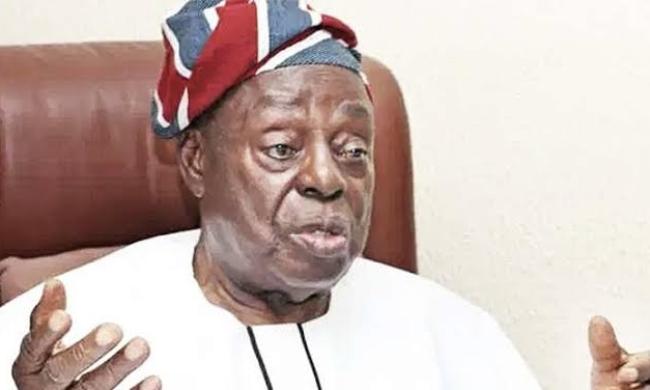
Aare Afe Babalola, a prominent legal figure and founder of Afe Babalola University in Ado-Ekiti, has voiced serious concerns regarding Nigeria’s growing debt crisis, stating that the country is now resorting to borrowing more money to pay off existing debts due to dwindling revenue.
Babalola highlighted that Nigeria’s external debt stands as the highest among all sub-Saharan African nations, even after receiving debt waivers from entities such as the Paris Club and the London Club. He noted that the accumulation of debt arrears has tarnished Nigeria’s reputation within the global financial community and adversely affected its economy, which raises significant alarms.
He explained that in 2020, a staggering 83 percent of Nigeria’s revenue was allocated to servicing debt. As of January 1, 2024, the federal government reported a revenue figure of N449.7 billion while simultaneously grappling with enormous debt repayments. Currently, Nigeria’s debt is an astonishing 168% of its total revenue.
Babalola urged the government to consider a strategy of negotiating with creditors for total debt forgiveness or at least a reduction in the outstanding amounts. He stated, “It is troubling that Nigeria is reportedly accruing more debts. In September 2024, the World Bank approved a $1.57 billion loan to support Nigeria’s health and education sectors and improve sustainable energy. Earlier in June, another $2.25 billion was allocated for economic stabilization. Furthermore, Nigeria borrowed $8.8 billion to be repaid through untapped oil reserves, totaling $12.62 billion in new debt alongside existing liabilities.”
He posed critical questions about the utilization of these loans, asking, “What have we done with all these loans, and what plans do we have for the additional funds? When will the Federal Government decide to stop financing the economy through debt? How will we repay these loans, and where will the funds come from?”
Babalola expressed dismay that despite the trillions of Naira borrowed, there have been no positive impacts on the economy. He lamented, “Where are the projects funded by these loans? Tragically, 64 years after gaining independence, Nigeria continues to suffer from decaying infrastructure, diminishing foreign investments, declining educational standards, increasing poverty rates, soaring inflation, and a significant depreciation of the Naira in the global market.”
He stressed that Nigeria’s debt burden has hindered domestic development and economic growth. Most government resources are funneled into debt servicing rather than essential public services. Consequently, the cycle of borrowing to pay off previous debts has deepened the nation’s poverty crisis, leading to the urgent need for economic intervention.
Babalola proposed that the Federal Government should follow former President Obasanjo’s example by negotiating for total debt forgiveness or at least interest waivers. He recommended forming committees to investigate the actual amounts borrowed, the intended purposes, and the projects funded by these loans.
He also called for inquiries into claims that Nigeria’s untapped crude oil has been sold in advance and what the proceeds were spent on. He urged the revival of national oil refineries to decrease reliance on imported refined oil, which would conserve funds for debt repayment.
Further suggestions included reducing governance costs, adopting practices from the First Republic where lawmakers viewed their roles as opportunities to serve, and prioritizing infrastructural development over recurrent political expenditures.
Babalola concluded with a message of hope, stating, “Despite the myriad of economic challenges facing Nigeria, there remains hope for our nation—a hope that requires political will to flourish.”
For more updates, join our WhatsApp channel: Join Here